Legacy Stories
Rod Taylor
Rod Taylor was a former professional soccer player in England. Rod was an adoring father to his children, Rachel and Spencer, and a loving husband to his wife Penny. In his adult life, Rod developed a short fuse. As he aged, Rod suffered from anxiety and severe memory problems. By 2016, Rod was diagnosed with Alzheimer’s Disease and could no longer care for himself. He died in 2018 and his brain was later found to have Chronic Traumatic Encephalopathy (CTE). Rod followed Jeff Astle as the second former British soccer player to be diagnosed with CTE. Rod's daughter Rachel is sharing his story to honor her father’s legacy and to raise awareness of CTE in the soccer community.
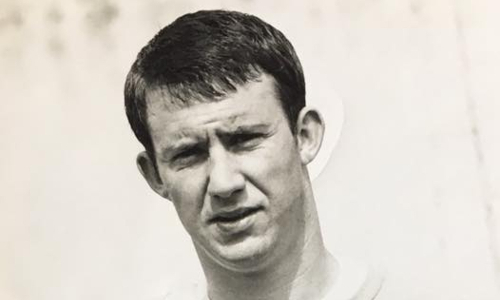
By Rachel Walden, Rod’s daughter
Rod Taylor was born on September 9, 1943, in the County of Dorset, England. From a young boy, he started his football journey as a goalkeeper, but quickly found he was better at kicking and heading than catching the ball.
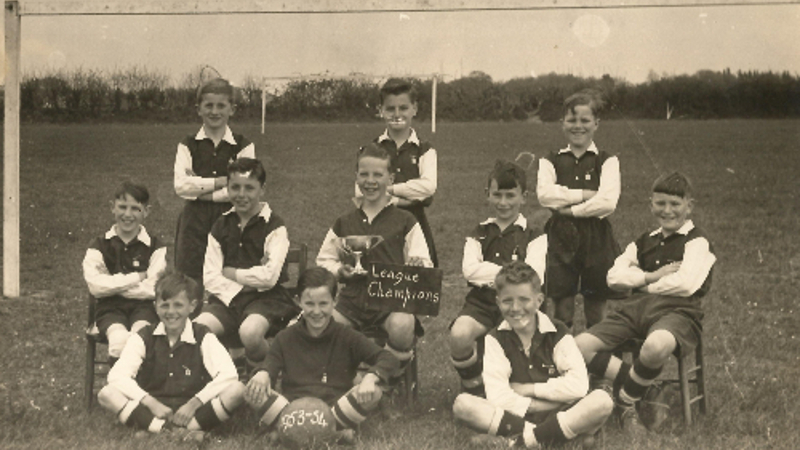
Rod’s pro career began at Portsmouth FC as a ground staff boy in 1958. He signed his first professional contract in 1961 at age 18 and went on to play at Fratton Park for two seasons as a wing half and central defender.
Rod met his future wife Penny Browning at a dance hall just around the corner from Fratton Park. The couple would go on to marry in Portsmouth in 1964. Rod and Penny had two children, Spencer, who was born in 1965 and Rachel, who was born in 1968.
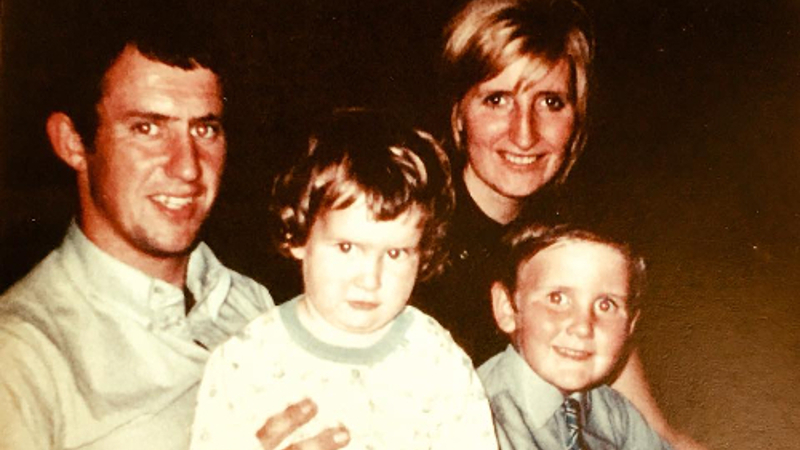
After his spell at Portsmouth, Rod joined Gillingham FC in July 1963 and spent three years at Priestfield. In 1966, he returned to Dorset playing under manager Freddie Cox, who had signed him at Gillingham. Rod made 40 appearances for AFC Bournemouth in the Fourth Division before joining Poole Town in August 1967. During his playing career Rod started a building and decorating company with fellow professional Tony Priscott. The two continued their partnership for 20 years.
Rod was known as a tough tackling player, who had a good footballing brain. Unbeknownst to Rod or his family, his exposure to repeated heading of the ball and multiple concussive and sub-concussive blows, would ultimately lead to his death in 2018.
After his professional playing career ended in 1967, Rod remained involved in football as a member of the Portsmouth Former Players Association. He continued to play amateur county league football well into his early 40’s alongside other ex-professionals.
A life-long vegetarian who never smoked and only occasional drank, he took diet and exercise seriously all his life. However, throughout his life, he was quick to fly off the handle and sometimes suffered with low moods.
He readily jumped out of the car to face-up to someone who had annoyed him on the roads. The men working for him knew him as fair but no-nonsense. To his family he was loving, kind, funny, and intelligent, but sometimes melancholy.
Rod and Penny raised Spencer to be a professional golfer and Rachel to join the Royal Navy. Late in his career, Rod settled into a quiet rural life living in Dorset. Penny worked for the National Trust as a conservator and Rod continued building right up to when Penny was diagnosed with cancer in 2010.
Penny was told she had stage 4 bladder cancer. Specialists told her the only hope of saving her would be for a radical cystectomy to be carried out at the Royal Marsden in London.
In August 2010, Penny had her bladder removed and the next six weeks she hovered closer to death than life. During this time, Spencer and Rachel took turns to be in London to support Rod, who by this time was showing signs of acute anxiety and mental incapacity. On one occasion, Rachel took the stairs to the intensive care unit but Rod took the lift due to his bad knee. For 30 minutes, Rachel stood outside the lift on the basement floor waiting for her father to arrive. It was just one floor, but Rod pushed every button. He was not sure which floor to get off on – despite having visited the intensive care unit every-day for six weeks.
The signs were there, but Spencer and Rachel put it down to him being stressed and worried about their mother. Finally, after nearly two months, the family returned to Dorset.
At 66-years-old, both Rod and Penny were never able to work again. Instead, they started to watch their lives unravel while Rachel and Spencer were unable to stop it from happening.
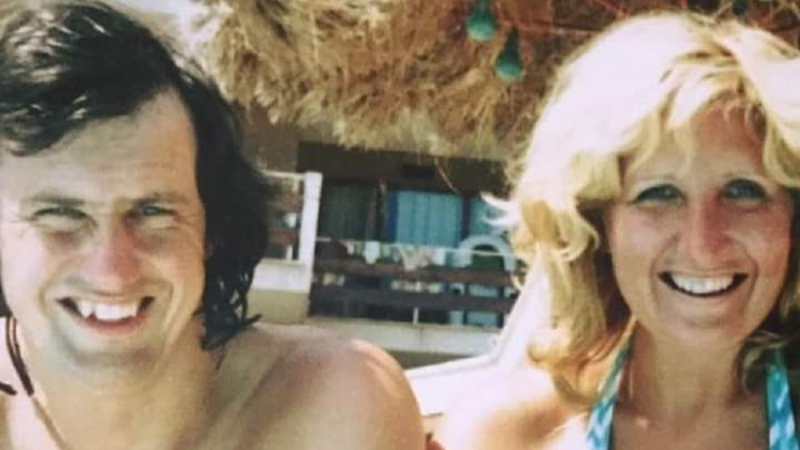
2010 - 2018
Penny never fully recovered from the radical cystectomy and instead of being able to take life easy, she had to care for Rod. By this time, Rod was becoming increasingly depressed, anxious, and forgetful. Penny kept a lot of what was going on secret from her children and close friends, as she wanted to protect Rod. Their world became narrow and small - friends would cross the road if they saw them out shopping. The two struggled on for a few more years and finally around 2016, Penny agreed to Rod seeing a neurologist to get him formally diagnosed. She frequently said, “I don’t need to stick a label on him to know its dementia,” but finally a consultant Neurologist provided the label. Rod was diagnosed with Alzheimer’s.
Rod tried multiple medications, but the drugs only made him worse. His gait became shuffled and he complained of the carpet “moving underfoot.” He slept much of the day. At night, he paced around measuring the bed cover and removing it whilst Penny tried to get some rest. Rod became incontinent and Penny began to worry he would choke on his food.
The dementia nurses couldn’t understand why his Alzheimer’s was progressing so fast – they had never seen anything like this before.
In 2017, Penny herself started to show signs of neurodegenerative illness. Her right leg developed a tremor and a neurologist diagnosed her with Parkinson’s soon after.
Despite this, Penny refused to place Rod into a care facility. Eventually Penny became desperate for sleep and finally agreed to move Rod into full-time care in April 2018. Within a week, Rod fell and Penny and Rachel arrived at the facility to see an ambulance parked outside. They walked into Rod’s room and were greeted by the ambulance staff. Rod was on the floor. He fractured his hip in the fall.
Rod spent two weeks in Poole Hospital. Doctors operated on his hip and tried to fight a sepsis infection, resulting in a main line being sewn into Rod’s neck to try and save his life. Because of Rod’s confusion, his hands were placed in mittens, so he couldn’t pull out the main line sewn into his jugular vein.
On the 16th of April 2018, just before 11 p.m., Rod died with Penny at his side. Spencer arrived shortly afterwards to sit with his parents. Rachel was in a complete state of distress and stayed with her husband. She refused to see her father’s body.
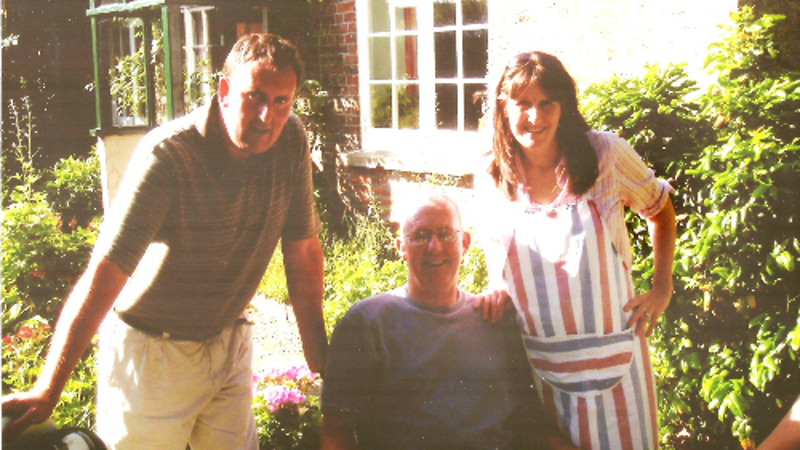
Because of the hip fracture, Rod’s body was sent for post-mortem, and it was determined Rod had died of Alzheimer’s and sepsis. The family consented to Rod’s brain being removed and sent to Dr. Willie Stewart in Glasgow. It wasn’t an easy decision for Rod’s wife and children, but they all felt passionately they needed to know what went so drastically wrong with Rod’s brain. Brain donation was the only way to answer their questions and to try and protect other footballers and their families from this brutal illness.
The process of the brain donation was handled personally by family friend, Dawn Astle. As the daughter of the England International Jeff Astle, Dawn and her family launched The Jeff Astle Foundation in 2015 and had been supporting the Taylor family since 2016. It fell on Dawn to liaise with Dr. Stewart and the coroner’s office to arrange for the transfer of Rod’s brain to the Glasgow Brain Injury Research Group. For the Taylor family, knowing Dawn was dealing with this meant they could concentrate on arranging Rod’s funeral which was held on the 11th of May. In front of hundreds of friends and family, Rod was laid to rest in a beautiful plot overlooking the Purbeck hills.
A few months after Rod’s death, Dr. Stewart rang Penny to confirm Rod in fact had CTE and dementia with Lewy Bodies. The family’s reaction was two-fold.
First, it gave them clarity and a better understanding of why Rod had behaved in certain ways in the early-mid stages of his illness. Second, it provided Rachel with an urgent determination that her father’s death would not be swept under the carpet by football, that his death would not be just an inconvenience and inconsequence to the sport. Today Rachel is a proud and active Trustee of The Jeff Astle Foundation and ‘wing-man’ to Dawn Astle.
Penny Taylor succumbed to Motor Neurone Disease passing away on 26th December 2020, she was 76 years old.
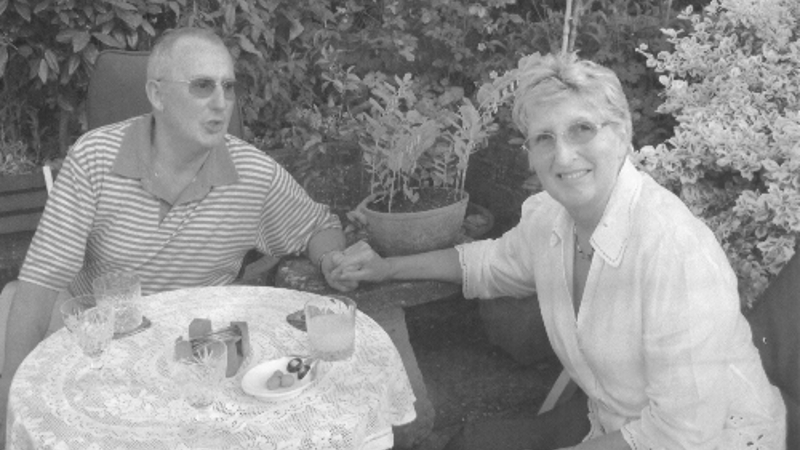
Before she died, she told Rachel to keep fighting, to fight for justice for her father and all the other footballers and their families. She said to tell the world that Rod Taylor deserved better, that they all deserved better.
You May Also Like

Living with suspected CTE can be difficult, but CTE is not a death sentence and it is important to maintain hope. Find out how.
Living with CTE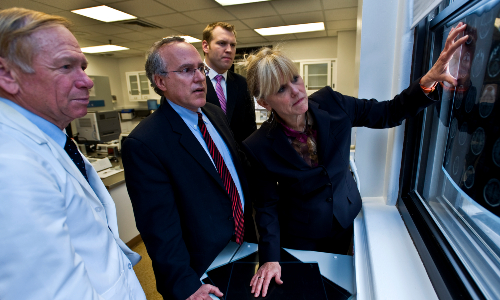
Although we cannot yet accurately diagnose CTE in living people, a specialist can help treat the symptoms presenting the most challenges.
CTE Treatments